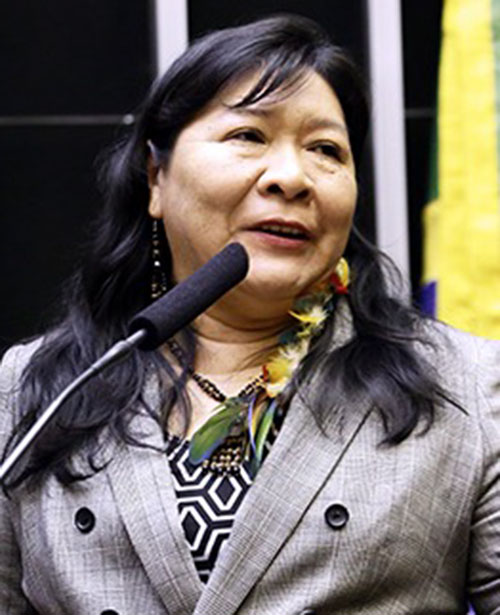BRASILIA, (Reuters) – Indigenous leaders in Brazil have asked the World Health Organization (WHO) to set up an emergency fund to help protect their communities from the threat of the coronavirus pandemic.
The number of indigenous people in Brazil who have died from the coronavirus so far has risen to 18, according to indigenous umbrella organization APIB, although the Brazilian government has only officially reported six of the deaths.
“It is a real emergency. Indigenous people are vulnerable and have no protection,” Joenia Wapichana, the first indigenous woman elected to Brazil’s Congress, told Reuters on Monday.
She said the government of President Jair Bolsonaro had not included indigenous people in national plans to fight the virus.
Bolsonaro’s new health minister, Nelson Teich, has said that protecting indigenous people is a priority. The government’s indigenous affairs agency FUNAI has stopped Christian missionaries from evangelizing isolated tribes during the epidemic to avoid contagion.
Many of Brazil’s 850,000 indigenous people live in remote areas of the Amazon with little or no access to healthcare.
Indigenous organizations in Brazil had written to the head of the WHO, Tedros Adhanom Ghebreyesus, asking for help to provide personal protective equipment that is unavailable to health workers in tribal reservations and villages, Wapichana said.
The appeal followed an open letter sent by dozens of international artists, musicians and actors on Sunday to Bolsonaro calling on him to protect Brazil’s indigenous people.
Signers included artists Ai Weiwei and David Hockney, musicians Sting and Paul McCartney, actors Glenn Close and Sylvester Stallone, and film and TV host Oprah Winfrey.
The letter warned that the “extreme threat” faced by indigenous people in Brazil was amplified by invasions of protected tribal lands by illegal miners, loggers and cattle ranchers.
“These illicit activities have accelerated in recent weeks because the Brazilian authorities charged with protecting these lands have been immobilized by the pandemic,” the letter said.





